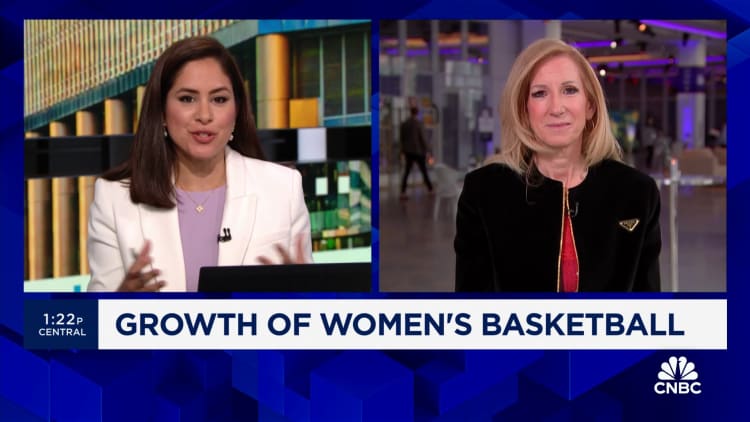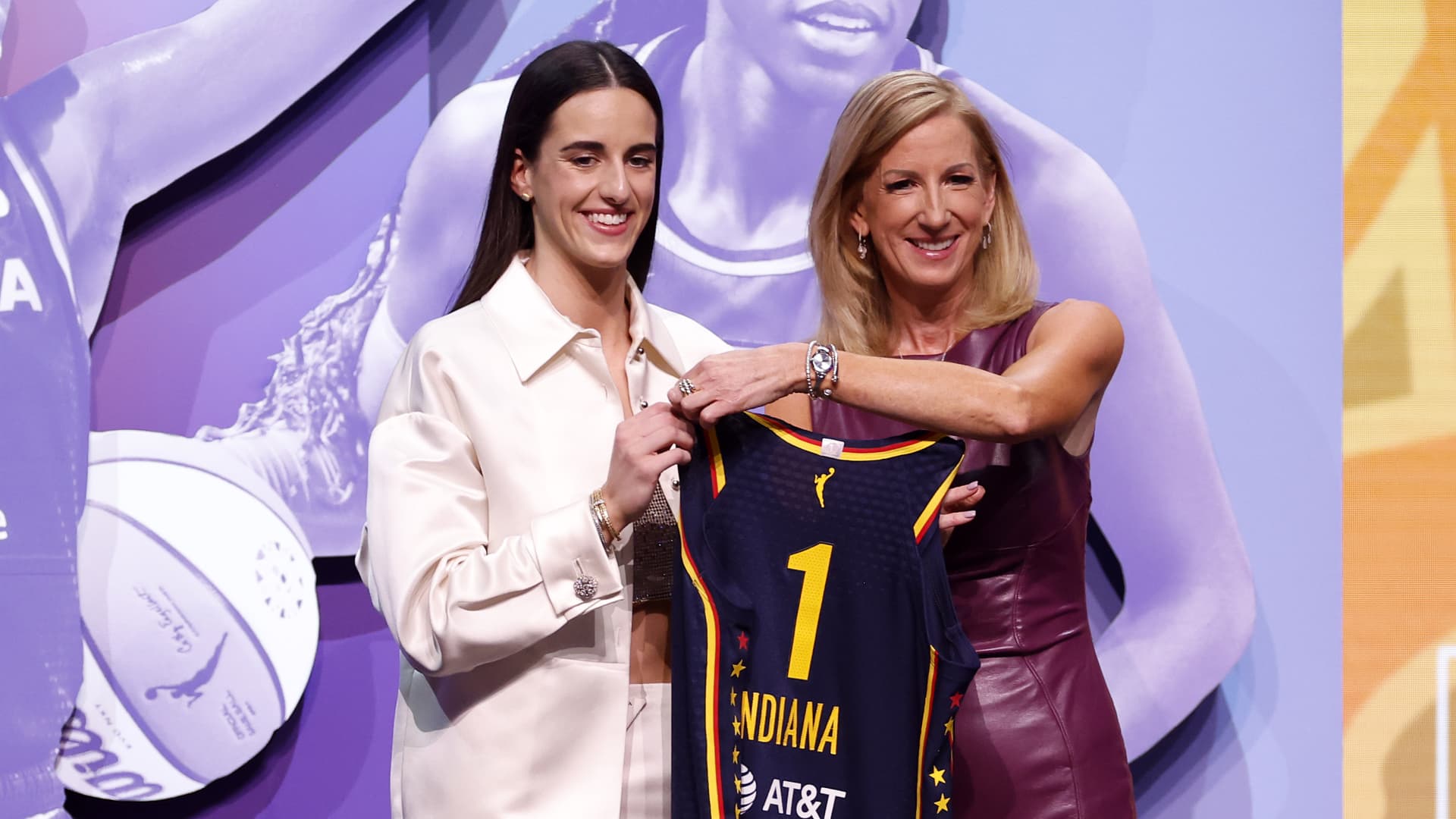
The excitement around Caitlin Clark being drafted first overall by the Indiana Fever in the 2024 WNBA Draft led 2.45 million viewers to tune in, eclipsing the league’s previous high for a draft by 307%, another indication of the impact that the NCAA’s all-time leading scorer in both men’s and women’s basketball will have on the WNBA.
Clark’s selection also put her future WNBA salary in the spotlight, leading to criticisms of her pay not just spreading across social media, but from the White House as well, with President Joe Biden saying on social media that “Women in sports continue to push new boundaries and inspire us all. But right now we’re seeing that even if you’re the best, women are not paid their fair share.”
Clark will earn $338,056 over four years, according to the WNBA’s collective bargaining agreement. Comparatively, San Antonio Spurs rookie Victor Wembanyama — the No. 1 pick in last year’s NBA draft — signed a $55 million four-year contract.
However, WNBA Commissioner Cathy Engelbert, speaking at CNBC’s inaugural Changemakers Summit on Thursday in New York City, said there’s a “false narrative” around Clark’s expected salary, likening it to the way that executive salaries are displayed for public companies.
“It’s proxy season; for a CEO, do you just put the base pay in there? No, you put their bonus, you put their stock options, you put everything,” said Engelbert, who was named the WNBA’s first commissioner in 2019 after serving as CEO of Deloitte, and was named to CNBC’s first Changemakers list earlier this year.
Cathy Engelbert, Commissioner of the Women’s National Basketball Association (WNBA) speaking at the CNBC Changemakers Summit in New York on April 18th, 2024.
Danielle DeVries | CNBC
“Caitlin has the ability to make up to a half of a million dollars just in WNBA wages this year, so they’re just looking at a base, which is collectively bargained and actually is low, because she’s the number one pick,” Engelbert said. “But she also has millions and millions of dollars in endorsements, and actually because she’s declared to become pro, her endorsements are higher in dollar value – she has a global platform now, not just a U.S. platform, so she’s going to do just fine as well.”
Clark had several sponsorship deals while she was a player at Iowa with companies like Nike, Gatorade and State Farm, part of the NCAA’s name, image and likeness regulations. While many of those deals will carry over to the WNBA, her expanding platform is also helping to further grow her portfolio: Clark is expected to sign a new deal with Nike worth well over $20 million that will also include a signature sneaker, according to The Athletic.
Engelbert noted that comparisons between WNBA draftee salaries and similar salaries for newly drafted NBA players or other men’s leagues should note that those leagues are “75 to 120 years old; we’re tipping off our 28th season.” The NBA has around $13 billion in revenue while the WNBA is roughly around $200 million.
“I would say if you look at them 28 seasons in, we’re further ahead, but we realize we still have a lot of work to do, and it’s all about the ecosystem around us that drives revenue,” Engelbert said.
Caitlin Clark poses with WNBA Commissioner Cathy Engelbert after being selected first overall pick by the Indiana Fever during the 2024 WNBA Draft.
Sarah Stier | Getty Images Sport | Getty Images
The WNBA has two main revenue drivers in media rights and sponsorships, and teams have the main revenue driver of ticketing, Engelbert said.
Currently, the league is working on its next media rights deal alongside the NBA, whose exclusive TV rights negotiating window with ESPN and Warner Bros. Discovery is expected to expire Monday without a new deal, opening up the door for other media and tech companies like Amazon, Apple and Netflix to potentially get involved in the bidding.
The WNBA’s existing media rights deal is worth roughly $60 million a year and expires in 2025, and Engelbert said she expects that to double.
“We hope to at least double our rights fees,” Engelbert said on CNBC’s “Squawk Box” in April. “Women’s sports rights fees have been undervalued for too long, so we have this enormous opportunity at a time where the media landscape is changing so much.”
Engelbert likened the WNBA to a “growth stock,” adding that the league, and women’s sports in general, is shedding the false view of it being “a charity or the right thing to do to support women.”
“We are a legitimate sports, media and entertainment property,” Engelbert said.

